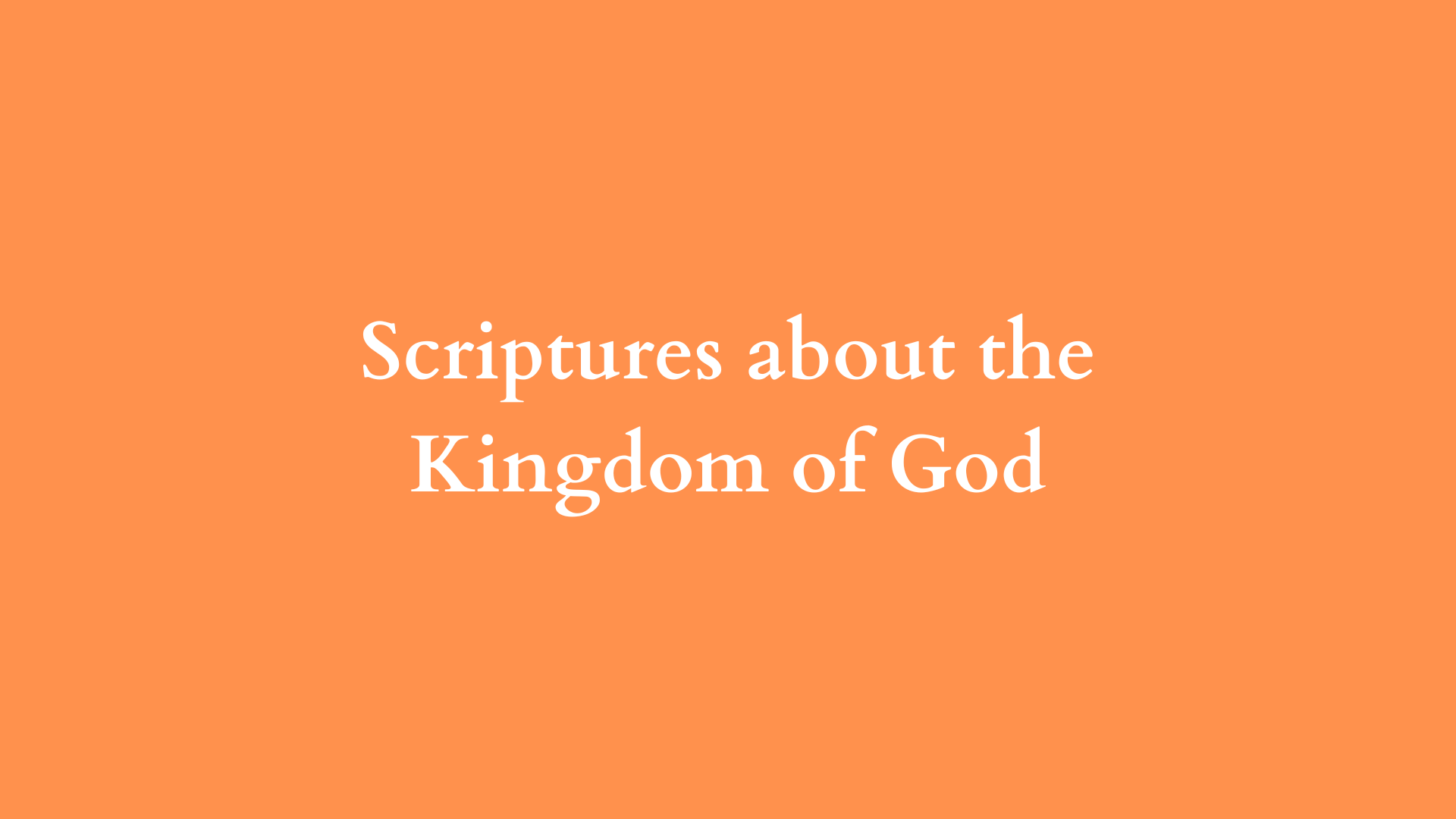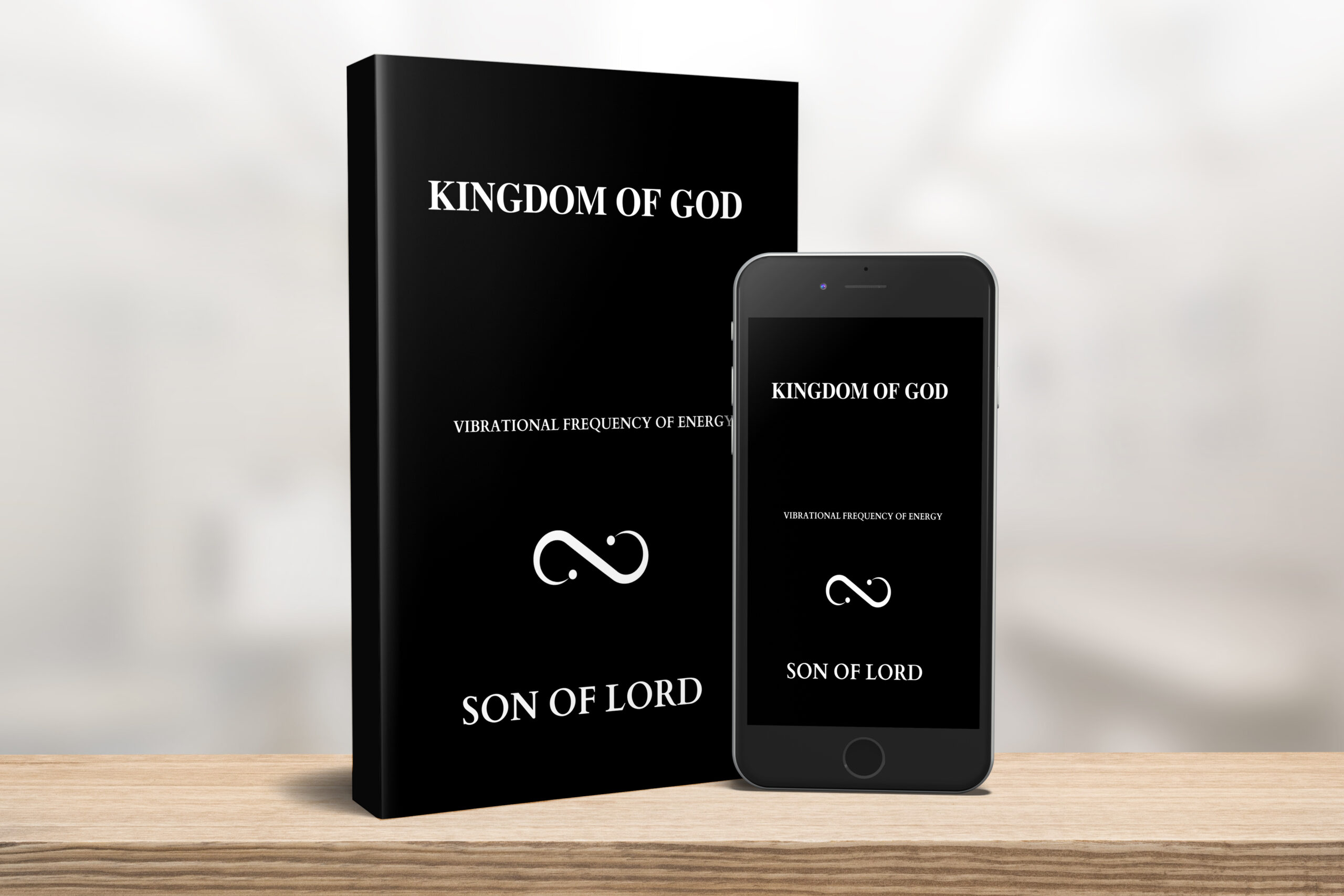Exploring the Scriptures About the Kingdom of God: A Comprehensive Overview
The Kingdom of God is a central theme woven throughout the fabric of Scripture, transcending both the Old and New Testaments. It encapsulates God’s sovereign reign and His ultimate authority over creation and humanity, embodying the essence of His divine will and purpose. As believers reflect on their faith journey, an exploration of the Kingdom of God within the biblical narrative can yield profound insights and rich understanding. This article aims to delve into various scriptures concerning the Kingdom of God, illuminating its significance, characteristics, and implications for both individual believers and the collective Christian experience.

Old Testament Foundations: The Kingdom Anticipated
While the phrase “Kingdom of God” may be more explicitly articulated in the New Testament, its roots are firmly planted in the Old Testament. The foundation for understanding God’s reign can be traced back to ancient Israel’s anticipation of a sovereign ruler, deeply entwined with the concept of God’s kingship.
1. God as the Sovereign King
In Psalm 103:19, the psalmist declares, “The Lord has established his throne in heaven, and his kingdom rules over all.” This verse underscores God’s supreme authority and governance over the universe. The acknowledgment of God as King is recurrent throughout the Psalms and the prophetic writings, emphasizing a divine rule that transcends earthly powers.
2. The Promise of a Messianic King
The prophetic books of the Old Testament also herald the coming of a Messiah who will establish God’s kingdom in completeness. Isaiah 9:6-7 proclaims, “For to us a child is born… and the government will be on his shoulders… of the greatness of his government and peace there will be no end.” This prophecy indicates not only the coming of a righteous ruler but also the expansion of God’s kingdom marked by justice, peace, and everlasting authority.
3. Kingdom Imagery in the Prophets
The prophetic literature frequently utilizes metaphors related to the Kingdom of God. For instance, Daniel 2:44 foreshadows a kingdom that will never be destroyed, indicating the permanence and universality of God’s rule: “In the time of those kings, the God of heaven will set up a kingdom that will never be destroyed.” Here, the prophetic promise points toward a future when God’s kingdom will surpass all earthly kingdoms and reign eternally.

New Testament Reality: The Kingdom Revealed
The arrival of Jesus Christ marked the fulcrum of the Kingdom of God, transitioning from prophetic anticipation to realized promise. The Gospel accounts illustrate Jesus’ teachings and actions that reveal the nature and implications of God’s Kingdom.
1. The Kingdom is at Hand
In Mark 1:15, Jesus summarizes His message with the declaration, “The time has come. The kingdom of God has come near. Repent and believe the good news!” Here, Jesus introduces a transformative call to recognize the nearness of God’s Kingdom, urging a response that involves repentance and faith. This moment signifies not only a spiritual awakening but also an invitation into God’s reign through a relationship with Christ.
2. Parables of the Kingdom
Throughout the Gospels, Jesus frequently employs parables to describe the Kingdom of God. For example, in Matthew 13, He presents several parables, including the Parable of the Mustard Seed and the Parable of the Leaven, illustrating the growth and pervasive nature of God’s Kingdom. Matthew 13:31-32 states, “The kingdom of heaven is like a mustard seed, which a man took and planted in his field. Though it is the smallest of all seeds, yet when it grows, it is the largest of garden plants.” This imagery points to the Kingdom’s seemingly small beginnings that culminate in significant impact.
3. Characteristics of the Kingdom
The teachings of Jesus emphasize specific characteristics of the Kingdom of God, particularly its values and ethical standards. The Sermon on the Mount, found in Matthew 5-7, articulates the moral foundations of the Kingdom, underscoring themes of love, mercy, and humility. In Matthew 5:3-10, the Beatitudes proclaim, “Blessed are the poor in spirit, for theirs is the kingdom of heaven,” indicating that the values of the Kingdom often reverse worldly expectations.
4. The Kingdom and Community
The Kingdom of God encompasses both individual believers and the collective community of faith. In Matthew 16:18, Jesus speaks to Peter, stating, “And I tell you that you are Peter, and on this rock I will build my church, and the gates of Hades will not overcome it.” This affirmation of the Church implicates the establishment of a community that actively participates in the realization of God’s Kingdom on earth, invariably linked to the mission of spreading the Gospel.
The Kingdom Fulfilled: A Future Hope
The eschatological aspect of the Kingdom of God is evident in the New Testament, where believers are assured of a culmination of God’s reign in the future.
1. The Revelation of the Kingdom
The Book of Revelation provides a vivid portrayal of the fulfillment of God’s Kingdom. Revelation 21:3-4 states, “And I heard a loud voice from the throne saying, ‘Look! God’s dwelling place is now among the people, and he will dwell with them… He will wipe every tear from their eyes. There will be no more death or mourning or crying or pain…'” This passage envisions a future where God’s presence pervades all creation, eradicating suffering and establishing harmony.
2. The Call to Be Kingdom Citizens
In light of this hope, believers are encouraged to live as active participants in the Kingdom today. Colossians 1:13-14 affirms, “For he has rescued us from the dominion of darkness and brought us into the kingdom of the Son he loves.” This transition underscores the transformative power of God’s grace, calling believers to embody Kingdom values in their lives through acts of love, service, and justice.
3. A Tapestry of Worship and Service
Ultimately, the Kingdom of God is not merely a temporal or spatial dimension but is profoundly relational, reflecting the nature of God Himself. As believers, engaging in worship and service are vital expressions of the Kingdom. Luke 17:21 reminds us, “The kingdom of God is in your midst,” emphasizing that the Kingdom is made manifest through the life and actions of Christ’s followers.
Conclusion: Living in the Kingdom of God
The scriptures concerning the Kingdom of God are rich with insight, inviting believers into a deeper understanding of God’s reign. From the Old Testament prophetic anticipation to the New Testament revelation through Jesus Christ, the Kingdom underscores God’s sovereignty, His moral imperatives, and the eschatological hope of a renewed creation. As followers of Christ, engaging with these scriptures challenges us to reflect on our own lives in relation to the values of the Kingdom and our role in its advancement on earth.
As we collectively journey in faith, may we embody the principles of love, humility, and service, becoming agents of God’s Kingdom. Through our actions and witness, we participate in the unfolding narrative of God’s redemptive work, conveying the hope and promise of the Kingdom of God to a world in need of His light and grace.
Shop Now






